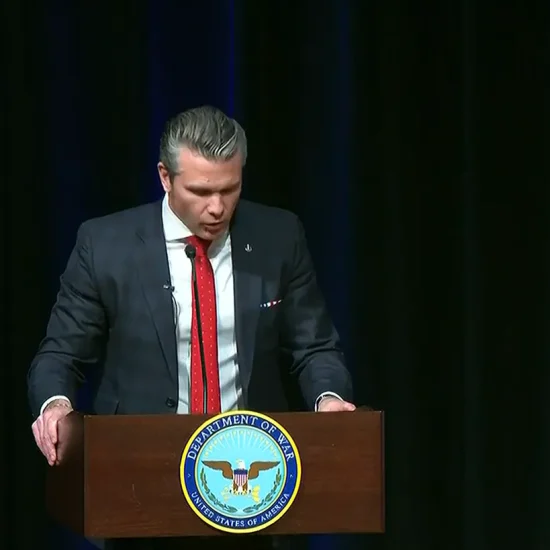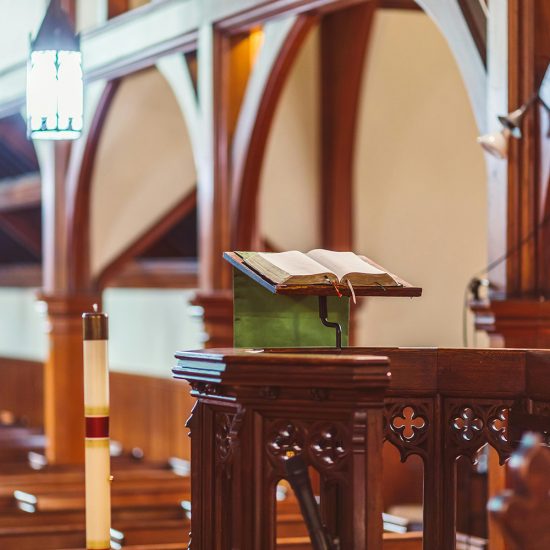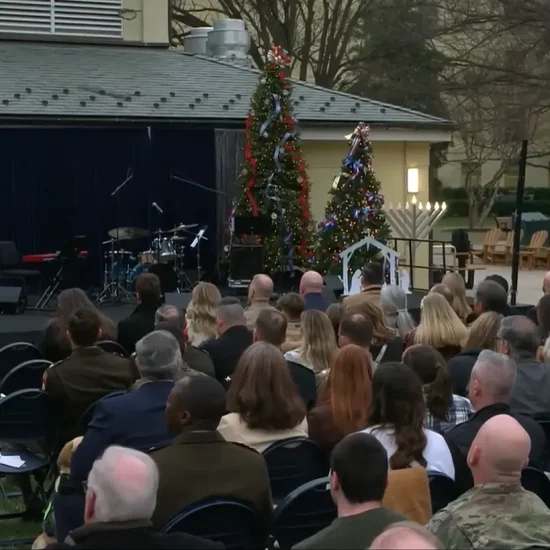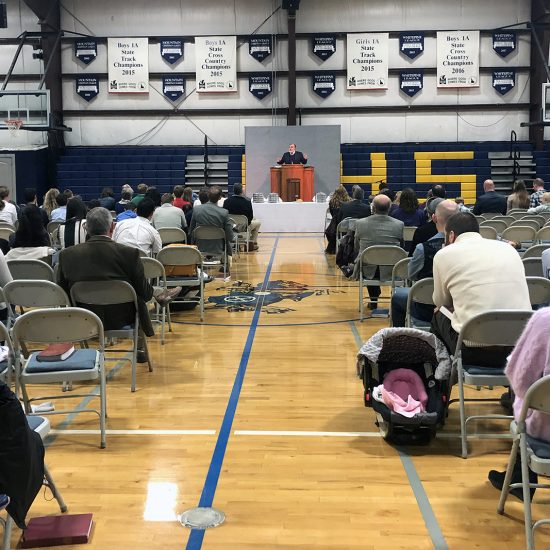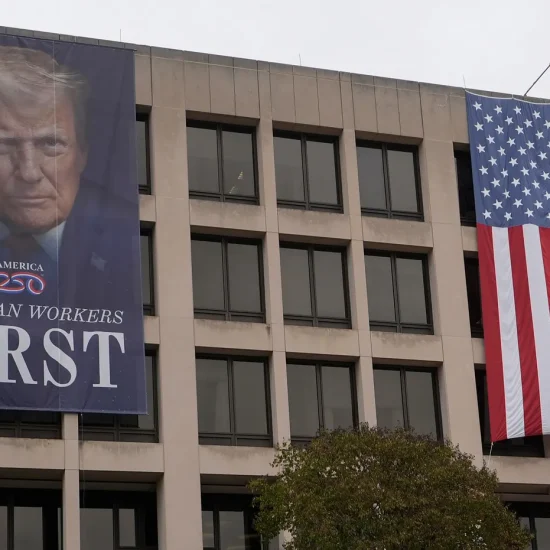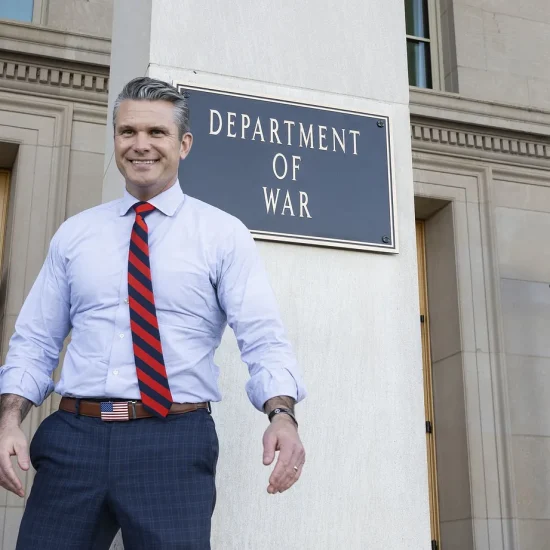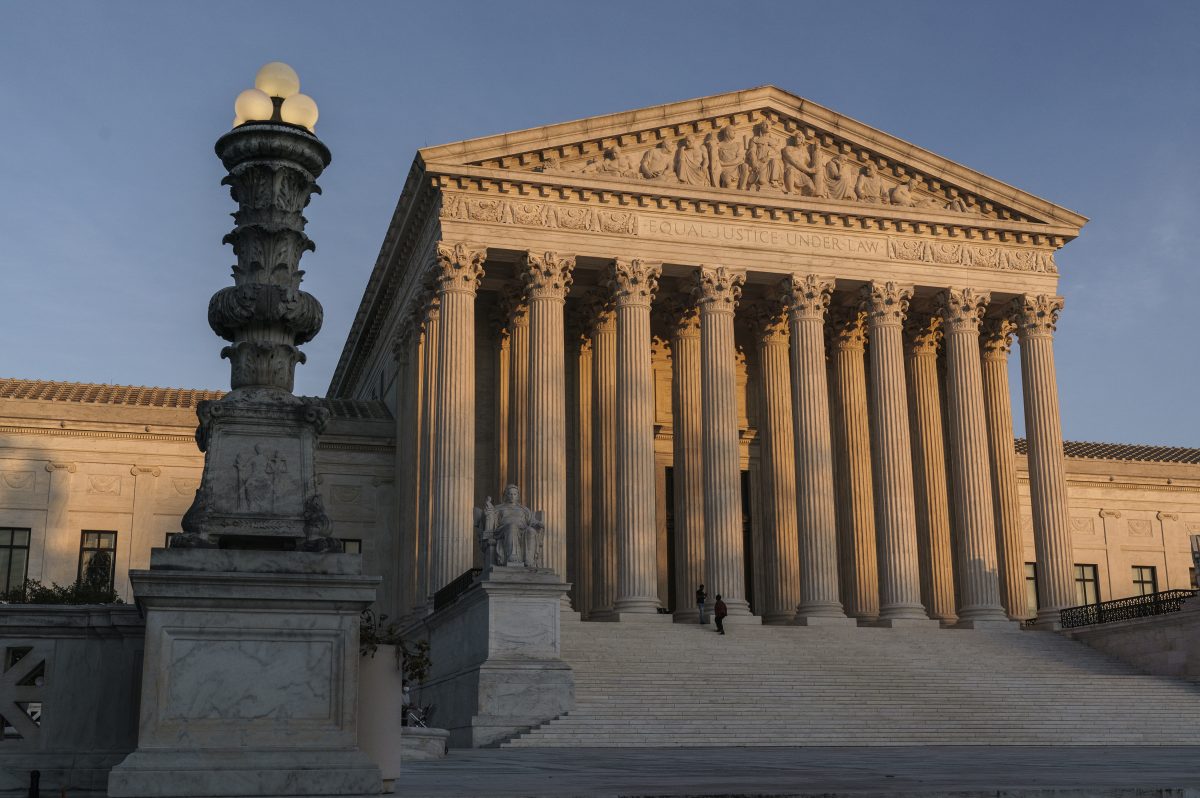
In an unsigned order from the Supreme Court’s “shadow docket” late Friday (April 9), five justices on the high court ordered California to lift restrictions on religious gatherings in homes — even as the same restrictions remain on other gatherings in homes. California’s rules, though they were already set to change on April 15, restricted private in-door social gatherings to individuals from no more than three households.
With the shadow docket intended for emergency cases, the justices can rule without a public hearing and even while lower courts are still considering a case and uncovering evidence. Criticism has been mounting of the increasing use of the shadow docket over the past year, with orders that often do not even give a reason for the decision.
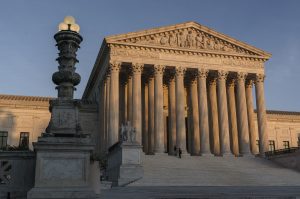
The Supreme Court is seen at sundown in Washington, D.C., on Nov. 6, 2020. (J. Scott Applewhite/Associated Press)
Friday’s order included some details, especially as four justices noted they dissented. Chief Justice John Roberts did not give a reason for his dissent, but Justice Elena Kagan wrote a dissent joined by Justice Stephen Breyer and Justice Sonia Sotomayor. The unsigned majority order, thus, came from the other five justices, though it’s not clear who wrote the short four-page order.
The majority order argues that “government regulations are not neutral and generally applicable, and therefore trigger strict scrutiny under the Free Exercise Clause, whenever they treat any comparable secular activity more favorably than religious exercise.” However, the five justices then looked to compare religious gatherings in private homes not with other gatherings in private homes but with public businesses.
“California treats some comparable secular activities more favorably than at-home religious exercise, permitting hair salons, retail stores, personal care services, movie theaters, private suites at sporting events and concerts, and indoor restaurants to bring together more than three households at a time,” the majority’s order reads.
Kagan’s dissent blasts the comparison in the per curiam order between a private, social gathering and businesses like hair salons and retail stores as an effort to “equally treat apples and watermelons.”
“California limits religious gatherings in homes to three households,” she added. “If the State also limits all secular gatherings in homes to three households, it has complied with the First Amendment. And the State does exactly that: It has adopted a blanket restriction on at-home gatherings of all kinds, religious and secular alike. California need not, as the per curiam insists, treat at-home religious gatherings the same as hardware stores and hair salons—and thus unlike at-home secular gatherings, the obvious comparator here.”
Kagan also noted the majority order incorrectly said a lower court that allowed the rules to stay in place did not find activities like shopping to pose less COVID-19 health risk than social gatherings in homes. But she provided quotes from the lower court’s ruling to show those judges actually did provide three health reasons why in-home gatherings posed a greater risk: people generally stay longer for social gatherings for “prolonged conversations,” private homes are “typically smaller and less ventilated than commercial establishments,” and enforcement of social distancing and masking rules are more difficult.
“In ordering California to weaken its restrictions on at-home gatherings, the majority yet again ‘insists on treating unlike cases, not like ones, equivalently,’ Kagan wrote citing one of her earlier dissents. “The majority continues to disregard law and facts alike.”
As Kagan’s dissent noted, this is not the first time in recent months the high court’s majority overturned COVID-19 restrictions to create a religious exemption. In February, the justices issued an order ending California’s attendance restrictions on in-person religious gatherings, even though the rules were the same for any mass gathering.
Word&Way Editor-in-Chief Brian Kaylor has testified in 2021 in Missouri Senate and House committees urging lawmakers not to create a “pandemic privilege for religion.”
“To exempt religious gatherings and organizations from the common-sense health rules imposed on similar events and groups does not respect religious liberty but instead violates it,” he argued. “This pandemic privilege for religion will not only upset our healthy constitutional church-state balance but will also endanger lives.”
Lawmakers in more than 20 states have introduced bills this year to create religious exemptions from pandemic health rules, which would codify at the state level the reasoning in Friday’s order from the high court.

